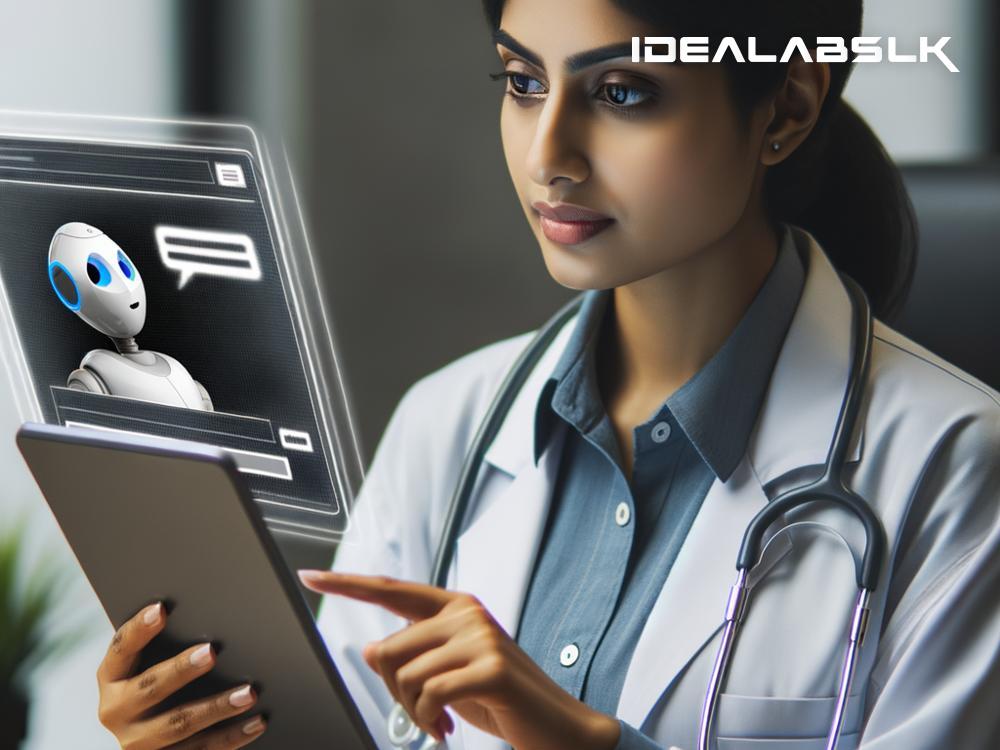In today's fast-paced world, the healthcare industry is turning to advanced technology to improve patient care and experience. Among these technological advancements, chatbots, powered by artificial intelligence (AI), stand out for their ability to facilitate better communication between patients and healthcare providers. The integration of chatbots in healthcare is transforming the way patients access medical advice, information, and even emotional support. So, what role do these chatbots play, and how are they helping both patients and providers communicate more effectively? Let's take a closer look.
Simplifying Access to Medical Information
One of the primary roles of chatbots in healthcare is to provide patients with easy access to medical information. Before the advent of chatbots, obtaining medical information often involved lengthy waits, whether on the phone or in person, just to ask simple questions. Now, chatbots are available 24/7, capable of providing instant answers to a wide range of inquiries. From explaining symptoms and conditions to offering guidance on medications and treatments, these AI-driven assistants make it easier for patients to find the information they need, whenever they need it.
Streamlining Appointment Scheduling
Making a doctor's appointment can sometimes feel like a daunting task, involving multiple phone calls and a lot of waiting. Chatbots, however, are changing the game. With chatbots, patients can easily schedule, change, or cancel appointments without the hassle. This not only saves time but also significantly reduces the workload of administrative staff, allowing them to focus on more critical tasks.
Enhancing Personalized Care
Chatbots are not just about answering questions and scheduling appointments; they're also about personalization. These AI systems can analyze a patient's history and provide tailored advice and reminders. For example, a chatbot can remind a patient to take their medication, follow up on a treatment plan, or schedule a follow-up appointment. This level of personalized care helps patients stay on track with their health goals and improves overall outcomes.
Supporting Mental Health
Mental health is another area where chatbots are making a significant impact. These AI tools offer a judgment-free zone for individuals to express their feelings and concerns. Chatbots designed for mental health support can provide coping strategies, mindfulness exercises, and even urgent referrals if necessary. For many people, talking to a chatbot about sensitive issues feels less intimidating, making it an important step towards seeking further professional help.
Bridging the Communication Gap
Effective communication is key in healthcare, yet it remains a challenge for many, including non-native speakers and those with hearing or speech impairments. Chatbots can bridge this gap by offering multilingual support and communicating through text, which can be easier for some people to understand and interact with. This inclusivity ensures that a wider range of patients receives the care and information they need.
Reducing Errors and Misinformation
Human error is inevitable, but chatbots can help reduce the likelihood of misinformation and mistakes. By relying on verified medical databases and constantly updating their knowledge, chatbots ensure that patients receive accurate and up-to-date information. This is crucial in a field where outdated or incorrect information can have serious implications.
Improving Efficiency and Cost-effectiveness
Finally, chatbots significantly improve efficiency and reduce costs in healthcare settings. By automating routine tasks, such as answering frequently asked questions and managing appointments, chatbots free up healthcare professionals to focus on more complex patient needs. This not only enhances the quality of care but also contributes to cost savings for healthcare providers.
Conclusion
The role of chatbots in healthcare is undeniably transformative. By enhancing communication between patients and providers, simplifying access to information, personalizing care, and improving efficiency, AI-powered chatbots are making a significant impact. As technology continues to evolve, we can expect chatbots to play an even more integral role in healthcare, ultimately leading to better patient outcomes and a more effective healthcare system. Whether it's getting medical advice at 2 a.m., receiving reminders to take medication, or finding support for mental health issues, chatbots are here to make healthcare more accessible, personalized, and efficient for everyone involved.

